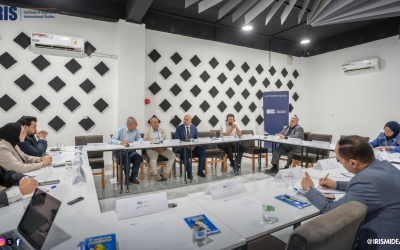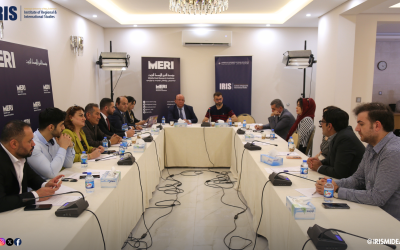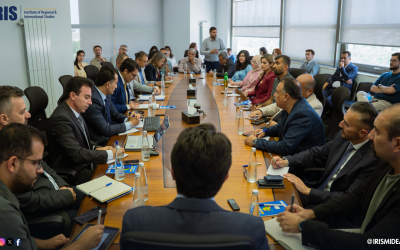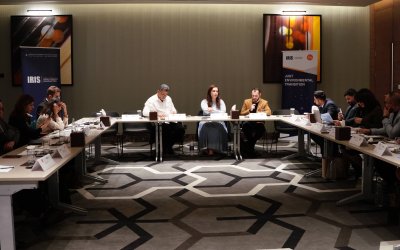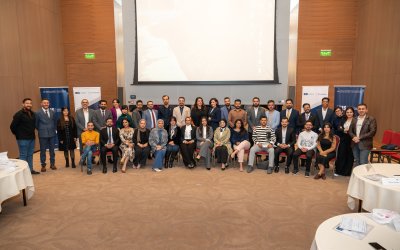On Wednesday, October 17, 2018 IRIS and the AUIS Entrepreneurship Initiative hosted an open discussion with Yara Salem, the World Bank’s Special Representative to Iraq, during Women’s Entrepreneurship Week October 13-20. The discussion focused on existing World Bank initiatives in the context of Iraq’s reconstruction, rebuilding, and financial management. It ranged from the social aspects of reconstruction and partnerships with Iraq’s Ministry of Planning to anti-corruption projects and finance for development projects.
Salem focused heavily on the social aspects of reconstruction, namely improvements to the Iraqi education and healthcare systems. She noted that the World Bank programs geared toward these areas focus on connecting universities and expertise abroad with the Iraqi education system to address relevant issues related to technology development, environmental innovation, and increasing workforce capacity. According to the World Bank, an Iraqi born today will work at 40 percent of his or her capacity as an adult than if they had full access to health and education benefits. The Human Capital Project, which evaluates health and education systems in Iraq, is aiming to change that statistic by working with the federal government to increase programs focused on childhood development and social protection systems in an effort to increase future capacity.
In a similar vein, Salem relayed the details of the World Bank’s collaboration with Iraq’s Ministry of Planning to improve and ensure implementation of the National Development Plan. She acknowledged that despite a wealth of knowledge in academia and the population generally, preparedness for the job market remains low and people still perceive public sector employment as a more feasible option than the private sector. Therefore, the World Bank is helping to increase the domestic capacity of Iraqis to improve their own government institutions and reduce their reliance on migrant labor and external expertise.
Parallel to efforts to increase workforce capacity and strengthen implementation of the National Development Plan, the World Bank is working to improve Iraq's Public Financial Management systems to increase oversight, efficiency, and management of public resources. This initiative, implemented in coordination with the EU Technical Assistance Program, pairs closely with other initiatives focused on public finance in Baghdad through eliminating ghost workers on the payroll and implementing biometric registration systems.
Salem emphasized that many of the issues related to capacity building can be solved through peer-to-peer learning and knowledge sharing, the incorporation of expertise from women, minorities, and NGOs and community organizations, and engagement of the private sector in addition to government institutions. With regard to the last point, she noted that before the World Bank gives loans to the Iraqi government, it tries to involve the private sector first to ensure public-private cooperation and increase confidence among private sector actors that payments for government contract work will be disbursed on time.
Salem wrapped up her discussion by acknowledging that Iraq has a long way to go in terms of increasing confidence in financial management and the banking system. In addition to having one of the lowest numbers of bank accounts in the world, Iraq also maintains very low levels of confidence in e-banking, anti-money laundering measures, and data privacy. Despite these obstacles, however, the World Bank is working closely with the Central Bank of Iraq and commercial banks to push for better corporate governance, address challenges related to mergers and capital reserve requirements, and strengthen public and private banking standards.

